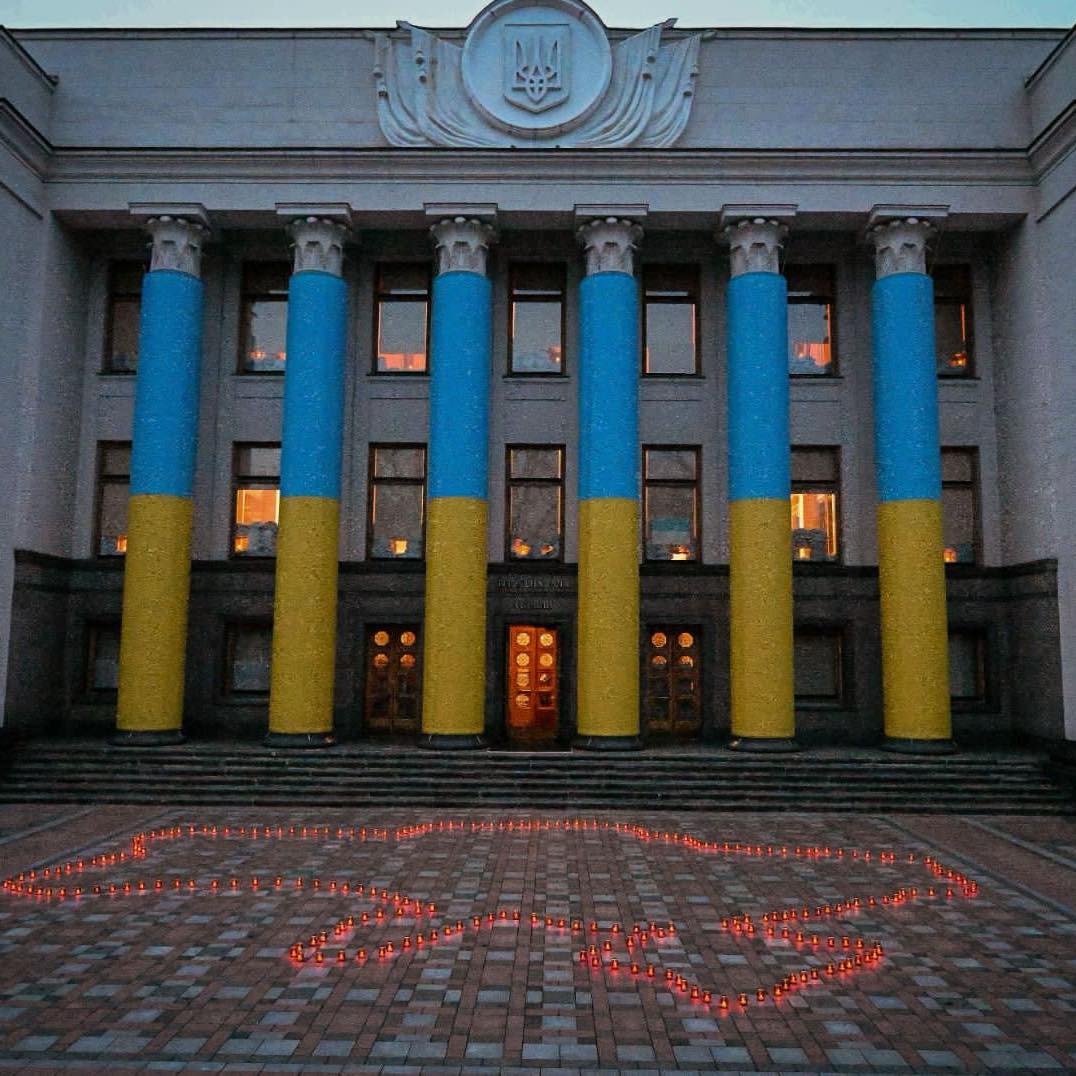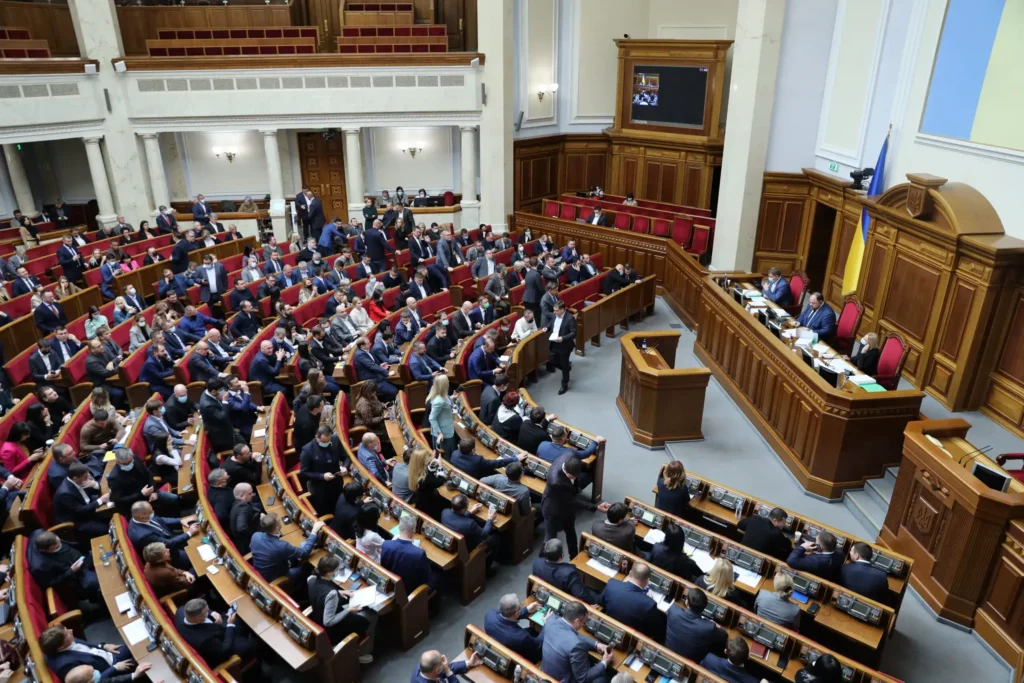Draft law on mobilisation – saving the frontline or a political game of the authorities? What is known before the second reading
11 March 2024 14:52
In early February, the Verkhovna Rada passed the draft law on mobilisation in the first reading. The second reading was postponed several times. MPs flooded the document with amendments – about 4,000 of them were registered. The head of the Servant of the People faction, David Arakhamia, said that the document would be considered in the parliamentary session hall this week, from 11 to 16 March.
The aim of the authors of the draft law on mobilisation is to streamline the existing mechanisms for replenishing the armed forces, to establish fairness in the distribution of the duty to defend the country among those liable for military service, and to rectify the situation where some of those fit for service are in the rear, while others have been participating in hostilities for two years without replacement. The first question that involuntarily arises when reading the draft law is whether the legal mechanisms currently available to the President and the Government have been exhausted
The law on mobilisation is not about replenishing the Armed Forces
Experts interviewed by Kommersant Ukrainian ![]() experts interviewed by Kommersant believe that the government has so far used the available tools ineffectively. Therefore, the adoption of the law on mobilisation should not be taken as a solution to the problem of replenishing the Armed Forces of Ukraine.
experts interviewed by Kommersant believe that the government has so far used the available tools ineffectively. Therefore, the adoption of the law on mobilisation should not be taken as a solution to the problem of replenishing the Armed Forces of Ukraine.

Several members of the relevant committee have publicly confirmed this: The Rada will consider the draft law in the second reading in the second half of March. In a commentary to Kommersant Ukrainskyi, a member of the relevant committee, Fedir Venislavskyi ![]() noted that the approximate deadline for processing the submitted amendments – 4,000 of them – is 25 March.
noted that the approximate deadline for processing the submitted amendments – 4,000 of them – is 25 March.
“I think that the Committee could potentially complete consideration of the amendments by 20-25 March and submit them to the Verkhovna Rada with a conclusion,”
– said MP Venislavsky.
Although the leader of the Servant of the People faction, David Arakhamia, assured that the Rada would begin considering the draft law this week, it is already clear that the law will not be in force before April. It is unlikely that 4,000 amendments, even if sorted and divided into 16 blocks, will be evaluated and voted on in one or two days. So far, only those proposals that are openly repressive are being discussed publicly. Arakhamia also mentioned the right to exemption from mobilisation for disabled people of all groups and the right of a single carer for a disabled relative not to be called up – they are planned to be preserved. They also plan to leave the reservation from mobilisation for postgraduate students of all forms of education, as previously insisted by MP from the same faction, Yegor Chernev.
The authors of the bill do not explain whether the number of defenders at the front will increase after its adoption. Rather, it is about putting things in order in the use of human reserves and reducing the number of fugitives who evade mobilisation. According to rough estimates that have been repeatedly published by the media, 1 million men serve in the Armed Forces of Ukraine as of January 2024. This is 11% of all persons liable for military service. Almost 3 million men have remained in the territories occupied since 2014. About a million more are abroad, and at least 1.5 million have disabilities.
the “target audience” of the draft law is 950,000 men who are registered for tax purposes, but no one knows where they are or what they do. Fedir Venislavsky, a member of the relevant committee, stressed that the adoption of the law would not mean that everyone would go to war. However, the discussions among MPs are mainly about repressive measures aimed at punishing evaders. Most of them talk about the expediency of restricting the rights of those who are subject to conscription but avoid their duty to defend the country.
Minister of Justice Denys Malyuska hedged against possible reproaches by stating that he did not see the proposed repressive measures as a violation of the constitutional rights of citizens. This statement is surprising, since the Constitution and the law on mobilisation provide for the restriction of citizens’ rights if necessary in wartime. Therefore, when choosing instruments of coercion against evaders, the parliament should be guided by the principle of expediency. Proposals to ban evaders from driving and to seize bank accounts caused a lot of controversy among MPs. Fines are being considered as an alternative to seizing accounts.
The border is locked
Citizens are particularly outraged by those who have left Ukraine with false documents and are now beyond the reach of the Ukrainian authorities. In order to block the way for others wishing to leave the country and avoid mobilisation, it is proposed that men leaving Ukraine should be obliged to present a military ID card with a mark of deregistration or recognition as unfit for military service when crossing the border. However, such demands have been heard at the border many times before: when the State Border Guard Service had doubts about the authenticity of decisions of military medical commissions (MMCs) and other documents confirming the right to leave.

However, it can also happen the other way round: there have been cases where a person who has been deregistered from the military showed border guards a military ID with the same stamp as the number of the article in the list of diseases, but the State Border Guard Service demanded a decision from the MMC. And the men were sent home to undergo the commission. And in addition to the stamp in the military ticket, they had to receive the decision of the MEC. Andrii D. from Chernihiv told Kommersant Ukrainskyi ![]() how he was refused permission to cross the border with Moldova at the Starokozache checkpoint of the Bilhorod-Dnistrovskyi border guard detachment (Odesa region).
how he was refused permission to cross the border with Moldova at the Starokozache checkpoint of the Bilhorod-Dnistrovskyi border guard detachment (Odesa region).
I was going to Chisinau to meet my friends at the airport. At that time, I had a stamp in my military ID card for three years that I was unfit for service due to cancer. But they did not let me through, they gave me an official refusal. I specifically called the SBGSU hotline with this problem. I was told that I had the legal right to leave Ukraine. There were two options: to appeal the decision to the head of the border guard detachment or to go straight to court. The case could have dragged on for months. So I decided to try at another checkpoint, went to Chernivtsi and left there without any problems,
– said a man declared unfit for wartime service.
Another option for evaders to escape the country is to apply for volunteer documents and leave, allegedly for humanitarian aid. But in the second year of the war, this is almost unrealistic, says Oleksandr T., a volunteer and head of an NGO. He has been bringing cars from Poland and Germany for the military since the beginning of the war.
“If I’m travelling alone, they know me, I have a long history of travelling, they will most likely let me through. After all, I come back every time. And there is no reason not to trust me. But if someone tries to go for the first time now, in the third year of the war, it will be very difficult. I know one young volunteer who had all the necessary papers to leave, and he was denied three times.”
– an experienced volunteer told Kommersant Ukrainskiy ![]() an experienced volunteer told Kommersant.
an experienced volunteer told Kommersant.
These and other similar stories show that too much depends on the human factor in controlling border crossings by potential evaders. And changes to the legislation on mobilisation are unlikely to change this.
Law or motivation?
Military expert Pavlo Lakiychuk perceives the unusual number of amendments to the draft law as evidence that MPs themselves are “evaders”, as it looks like an attempt to water down the bill. He insists that most of the existing problems with mobilisation could have been solved much faster without waiting for the law to be passed.
“The Supreme Commander-in-Chief has the authority to resolve some issues on his own, while the Cabinet of Ministers resolves some issues. Mobilisation and its implementation are not the competence of lawmakers, the Rada only defines the principles of mobilisation work,”
– the expert told Kommersant Ukrainskiy ![]()
Military expert Oleh Starikov believes that the problem today is not so much the number of people at the front as the motivation:
“There were no problems at the beginning of the war, and then something happened that changed the situation… We are waging a just war, we were attacked by an aggressor. So we need to be defended by highly motivated people. Will the mobilised be like that?”
He believes that the current government is ignoring military-patriotic education and financial incentives for those who can and must defend the country.
Restoring order in public finances and, as a result, increasing the salaries of military personnel can have a much more powerful effect on the successful conduct of the war than the draft law on mobilisation and its numerous amendments. As an alternative to the current system of coercion, the military themselves call recruitment centres. But there are still only a few of them in the country.
Author: Anvar Derkach









